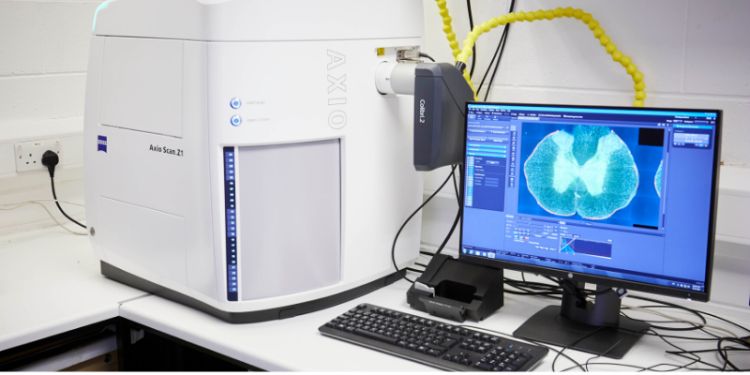Advanced Training Programme in Biological Sciences
Computational Programming in Biomedical Science

Monday 20 – Friday 24 July 2020
Overview
This course will cover the fundamental concepts of computer programming, aimed towards the problems faced in biomedical sciences. Students will develop a basic competence in computer programming (in Python), and apply their knowledge to a simple but typical problem faced in biomedical sciences. The concepts learned in this course are translatable to any programming language.
Practical content
Part 1: Learning the basics:
- Learning “hello world” – your first program!
- Variables and variable types.
- User and file input/output.
- Reading in images.
- Simple calculations.
- Using premade functions (for example to compute statistics).
- Arrays.
- Conditional statements and iterative loops.
Part 2: Application in a mini-project:
Choice of one of two mini-projects which apply the basic programming skills to a simple but typical biomedical sciences problem:
- Project 1: Automatically segment and analyse a biomedical image.
- You will be provided with a confocal fluorescence microscopy image of a cell, with protein labelling. Your task is to open the image, segment it into two regions (presence and absence of labelled protein), output the segmented image, and then calculate a histogram of protein expression.
- Project 2: Automatically analyse time-series data.
- You will be provided with time-series data, such as an ECG or action potential trace. Your task is to automatically identify and calculate measurable properties on these data.
Learning outcomes
- Basic concepts of computer programming: user input/output; file input/output; loops and conditionals
- How to load and analyse scientific images
- How to load and analyse time-series data
- How to perform repeated calculations and analyse large datasets
Course structure
This course will be taught through interactive workshops: concepts will be introduced, followed by small tasks which support and test understanding of those concepts. The mini-project will then be conducted with demonstrator supervision to provide help.
Who would benefit from this course?
- Recent graduates preparing to undertake Masters-level training with a significant research component or wishing to increase their competitiveness for a research degree (PhD)
- Graduates with limited computational biosciences experience who would like to develop additional skills in this area
- Undergraduate students approaching their final year of study, particular those preparing for research projects or about to finish their undergraduate degree.
Fees and funding
Programme fee: £750 per week payable to the University of Leeds prior to the course starting. This fee includes tuition costs, consumables for the practical sessions and lunch during the teaching day. It does not include costs for accommodation or any living expenses.
If you’re unsure about the application process, contact fbsadmissions@leeds.ac.uk or +44 (0) 113 343 3021.
How to apply
Applications for 2020 are now open!
All applications for the Advanced Training Programmes must be made online. The application deadline for the Advanced Training Programmes is 4pm on May 6 2020.
We recommend that you apply as soon as possible as enrolment is limited and allocated on a first-come first-served basis. Applying early also means you are more likely to secure a place on your first choice of course as popular subjects are likely to fill up quickly.
Read about visas, immigration and other information in International students.

